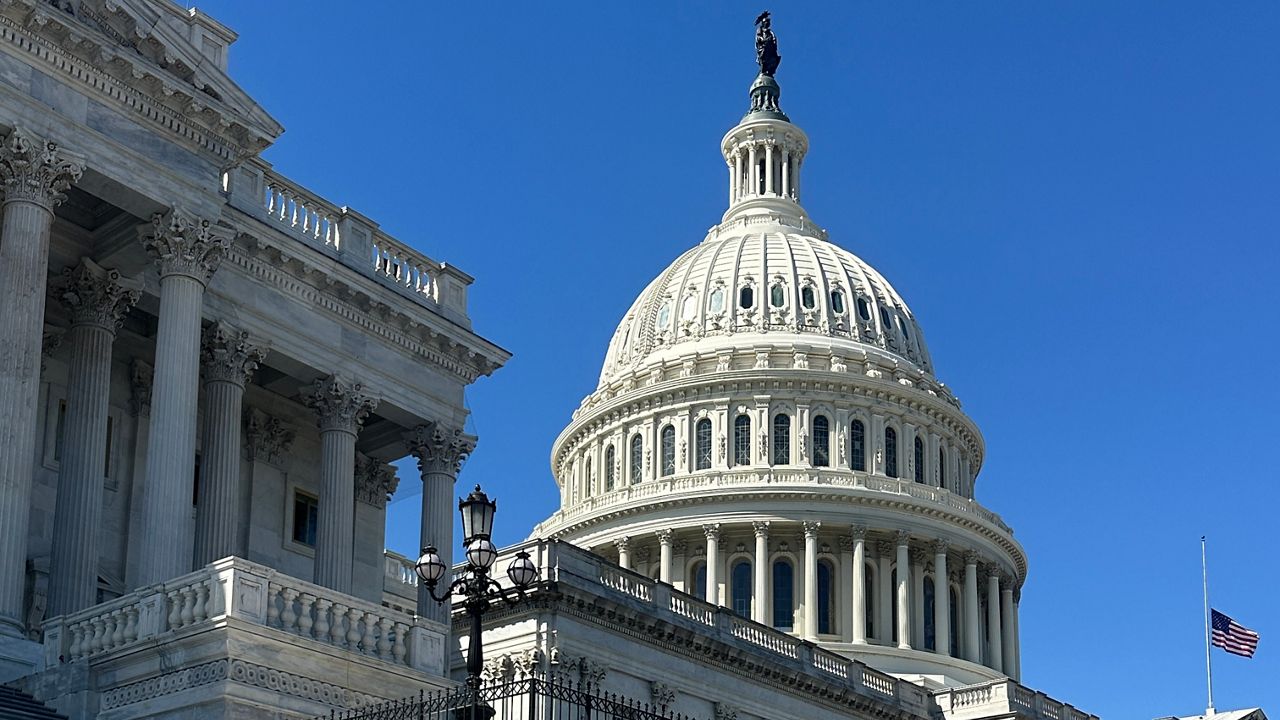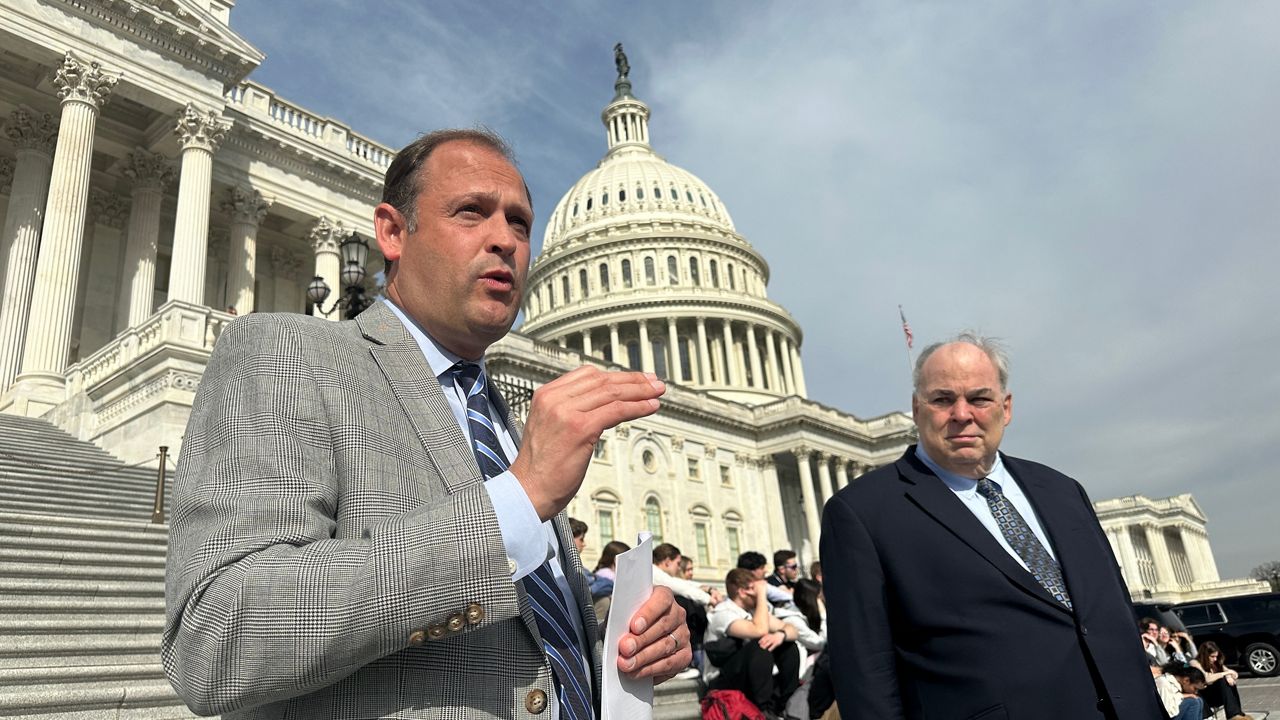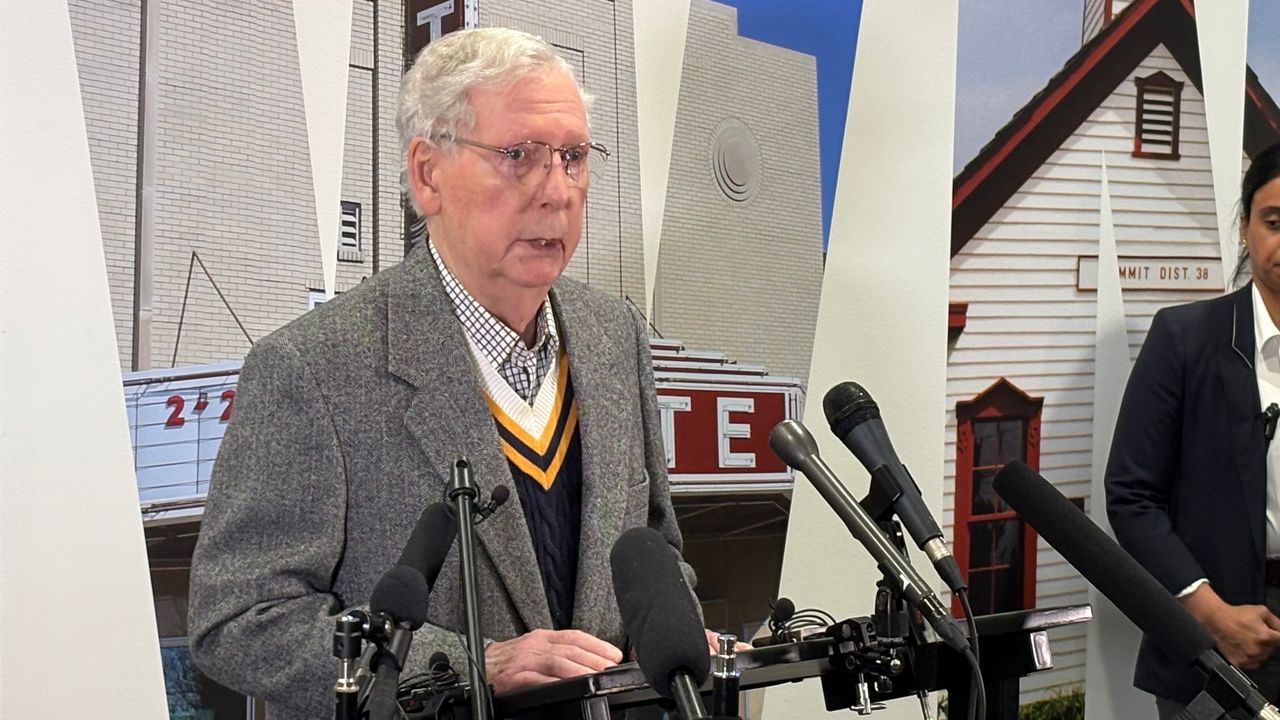WASHINGTON — If re-elected in November, former President Donald Trump said he plans to shut down the federal Department of Education and move the agency’s powers to the states.
He often mentions the proposal at rallies, and it’s listed in the 2024 GOP Platform, which is linked on Trump’s campaign website. But education policy experts said dismantling a federal agency isn’t as easy as signing an executive order.
“A second Trump administration could not simply dismantle the Department of Education with the authority of the executive alone," said Rachel Perera, governance studies fellow at the Brookings Institution. "They would need Congress to act. It's a policy proposal that stands very little chance of actually passing."
The federal Department of Education began work in 1980, after then-President Jimmy Carter signed it into law. Perera said it would take 60 votes in the Senate to dismantle a federal agency and it’s unlikely that such a proposal would receive any bipartisan support.
Arne Duncan, who served as Secretary of Education under former President Barack Obama, said it’s not feasible to pass federal responsibilities to the states.
“It just makes no sense," Duncan said. "It would be incredibly self-destructive to the country. We would never, sort of, outsource the military or the Marines, the Army or the Navy to 50 states to somehow do this themselves because it's too important.”
He also said Trump made no mention of dismantling the Department of Education during his first term as president.
“What we know from Trump is not just what he proposes," Duncan said. "We know what he did and how little interest he had in having America be the best-educated citizenry, the best-educated workforce, the best, the most skilled workforce in the world."
"He had no interest in that, and he would do everything he could to tear down, to dismantle, to create fear.”
Jim Blew, who served as Assistant Secretary of Education for Policy under Trump, conceded it would take time to dismantle the federal Department of Education. But he said the country could save money if the responsibilities of the agency’s offices were instead outsourced to other federal departments.
“Every one of them has a purpose that Congress has outlined, and all of them can be done by someone else,” he said.
The federal government should get out of the way to allow local governments to better serve the needs of their communities, Blew added.
“The underlying principle that's getting lost when people look at Project ‘25 and some of the very wonky prescriptions in there, what we need to do as a country is move toward a system that operates like every other part of the American economy, where people have freedom to choose and there's diverse supply that meets that needs,” Blew said.
By law, the Department of Education is responsible for providing funding for schools, enforcing federal civil rights laws and supporting education research. While the GOP 2024 platform doesn’t spell out exactly how the federal Department of Education would be dismantled, the Heritage Foundation laid out more specifics in a plan included in its Project 2025 agenda.
Under that plan, the Department of Health and Human Services would allocate funding for lower-income schools. The Department of Justice would handle civil rights complaints and only through litigation. The Census Bureau and National Science Foundation would take up some research, but only after addressing “major governance and management issues.”
Blew said he doesn’t agree with all the policies spelled out in the Project 2025 agenda, but emphasized what he views as a need for reform in the agency.
“On the Republican side, we feel an obligation to challenge that the Department of Education has not been effective, has been very costly to the taxpayers and that it needs to be reviewed,” Blew said.
Project 2025 estimates its education proposal would save more than $17 billion per year. But Perera said the government likely wouldn’t see those savings because unless there’s a change in the law, the work of the federal Department of Education would still need to get done.
“If you're going to disperse different functions from the Department of Education to other agencies, I would expect you to also increase the resources that those other agencies have to take on bigger portfolios of work, right?” she said.
Meanwhile, Duncan argued the federal Department of Education should have more resources, not fewer.
“Rather than eliminating, rather than chopping it up, we need to emphasize that role and have it be a robust role because it is so critically important,” Duncan said.
The Biden-Harris administration has upped its funding request for the Department of Education for the next fiscal year, asking Congress to authorize $82.4 billion in spending. Congress needs to agree on an education budget by the end of the month or risk a government shutdown.












